Roger Allen - The Shattered Sphere
Здесь есть возможность читать онлайн «Roger Allen - The Shattered Sphere» весь текст электронной книги совершенно бесплатно (целиком полную версию без сокращений). В некоторых случаях можно слушать аудио, скачать через торрент в формате fb2 и присутствует краткое содержание. Год выпуска: 1994, ISBN: 1994, Издательство: Tor Books, Жанр: Фантастика и фэнтези, на английском языке. Описание произведения, (предисловие) а так же отзывы посетителей доступны на портале библиотеки ЛибКат.
- Название:The Shattered Sphere
- Автор:
- Издательство:Tor Books
- Жанр:
- Год:1994
- ISBN:0-312-85734-9
- Рейтинг книги:5 / 5. Голосов: 1
-
Избранное:Добавить в избранное
- Отзывы:
-
Ваша оценка:
- 100
- 1
- 2
- 3
- 4
- 5
The Shattered Sphere: краткое содержание, описание и аннотация
Предлагаем к чтению аннотацию, описание, краткое содержание или предисловие (зависит от того, что написал сам автор книги «The Shattered Sphere»). Если вы не нашли необходимую информацию о книге — напишите в комментариях, мы постараемся отыскать её.
.
Humans face two enemies—the implacably powerful Charonians who kidnapped the Earth, and the mysterious Adversary, before whom the Charonians quake in fear. Can an unlikely combination of scientists, corpses, dictators, and professional troublemakers withstand both threats and return the Earth to its proper place in the Solar System?
The Shattered Sphere — читать онлайн бесплатно полную книгу (весь текст) целиком
Ниже представлен текст книги, разбитый по страницам. Система сохранения места последней прочитанной страницы, позволяет с удобством читать онлайн бесплатно книгу «The Shattered Sphere», без необходимости каждый раз заново искать на чём Вы остановились. Поставьте закладку, и сможете в любой момент перейти на страницу, на которой закончили чтение.
Интервал:
Закладка:
Central City had always been proud of its trees and its gardens, growing tall under the blue stone skies of the domes. Most of the decorative plant life had died during or after the quakes. Some plants were crushed or smashed or uprooted in the quake, but most died because the water-line systems that fed them were wrecked. Repair priority, quite rightly, was given to repairing the water system for the distinctly non-decorative hydroponic gardens that supplied the city with a large fraction of its food and air.
The city and the people had survived, but all too many of the trees and gardens died of thirst. Most of the gardens had come back and, here and there, a new sapling showed itself, green as life and fresh as hope; but even now, five years on, dead trees were everywhere. The city was cutting them down and replanting as best it could—but it had to move slowly. If it had cut down all the trees and sent them for recycling all at once, the city’s biomass and carbon-cycle balance would have been thrown totally out of whack. The city could not afford the effort and materials needed to do a major biomass rebalance. So the dead trees stayed up, grey skeletons thrusting up toward the sky.
Everything in the city was like that. Everywhere there were scars that should have healed by now, except that Central City, and its people, were still working on the basic structural repairs. Nothing, absolutely nothing, could be imported. Earth wasn’t there to ship anything, and the other worlds were far worse off than the Moon. The Moon had effectively been self-sufficient for years—but Earth had always been there as a backstop, as a source of sophisticated spare parts and luxury items. No more.
Sidewalks were out of true. Windows were cracked. Here and there, the paint on the dome had peeled or chipped, revealing spots of grey-black rock behind the sky blue facade. Buildings were repaired with braces and struts, rather than rebuilt. Everything strong and ugly, and nowhere a hint of grace. People were expected to make do.
Marcia hurried down a once-moving walkway that had stood still for five years, went down two levels to the nearest transport center. The daily hopper run to the North Pole was going to lift in twenty minutes, and she had to be on it. The survey teams searching through the unbelievably vast corpse of the Lunar Wheel had found something.
She checked her wristaid for the time again. She could still just make it if she hurried.
Marcia MacDougal was not much for false modesty. She knew she was one of the leading experts—no, the leading expert—in Charonian visual language and symbology. It was fascinating and useful work, but it did have its drawbacks—for instance, traveling via hopper. She was constantly shuttling back and forth between Central City and Dreyfuss Station at the North Pole, and the trip never got any better.
Lunar travel used to mean leaving your comfortable surroundings, going aboard a cramped, uncomfortable roller to be jounced along on a bad road, or perhaps taking a sub-orbital hopper rocket, cramming yourself into the too-small seats and suffering through the roaring, rattling, crushing-heavy weight of the launch. It meant feeling a bit queasy as the roller hit a bad patch in the road or the hopper cut its engines and made that abrupt lurch into zero gee. It meant the thrill of fear when the roller seemed to come far too close to the edge of a precipice, or when the braking rockets appeared to be something more than a trifle late lighting up. It meant bad food, close quarters, and a distinct sense that time had stood still and you were going to be trapped in an oversized tin can forever. But then you would arrive, and step through the pressure lock, and it would be over, and you would be back in civilization, with good air and proper food and enough space to stand up and turn around in.
Nowadays, lunar travel was exactly the same, but the comfortable surroundings at either end had deteriorated quite seriously. If Central City was a bit shabby these days, Dreyfuss Station was positively grim.
The hopper ride was miserable, made no less so by the fact that safety regulations required everyone to wear a pressure suit during the flight. Marcia had no real quarrel with that rule. She knew as well as anyone exactly what condition the hopper fleet was in, but it did not make the suits any more pleasant to wear. At least you didn’t have to seal your suit, just be able to button up in a hurry. Wearing the thing unsealed was torture enough.
Having but little faith in the hull’s integrity, Marcia breathed a half sigh of relief when the underpowered spacecraft made a safe—if slightly bumpy—landing at the North Pole spaceport.
At least the memorial services meant the hopper wasn’t packed to the bulkheads the way it usually was. Marcia MacDougal waited with the two or three other passengers for the roller to dock up with the hopper. One obvious first-timer stood up and went over to wait by the hatch, but Marcia and the others waited it out in their seats. No sense standing on everybody else’s toes in the low-ceilinged hatchway for the ten minutes it would take to get the two crotchety old vehicles docked. Marcia closed her eyes and tried to think of quiet, comfortable places. It wasn’t easy.
At last the hatch opened with a weary creak. Marcia opened her eyes, pried herself out of her chair, grabbed her travel bag, and made her way to the hatch.
They filed into the roller and the hatch closed behind them. The first-timer made the mistake of sitting down for the ride, but Marcia and the others stood, holding onto one of the straps hanging from the overhead bulkhead. She slung the strap of her travel bag over her shoulder, and braced her feet as best she could. It was awkward, but it beat being thrown out of your seat on the first bounce. The roller’s seatbelts had been “borrowed” for use on other vehicles years ago.
The motors whirred to life, and the elderly surface vehicle lurched into motion. The roller was in no better shape than it had been the last time she had ridden it, and it creaked and groaned most alarmingly as it jounced over the lunar surface. The newcomer bounced out of her chair three times before standing with the rest of them.
After a more than usually bone-rattling ride, the roller arrived at the station and entered the vehicular airlock. The hatch closed behind the roller, and Marcia listened as the air hissed into the airlock chamber. The roller’s hull pinged and groaned as it adjusted to the change in pressure. The hatch opened, and she was there, even if “there” wasn’t much of a place.
Travel bag still over her shoulder, she stepped out of the airlock chamber and into the main transport entrance of Dome One, Dreyfuss Station, to be welcomed by the rotting-sweatsock smell that summed up the whole of Dreyfuss Station so far as Marcia was concerned.
The transport section took up about half the hundred-meter diameter of Dome One. It had all the ambience of a third-rate loading and storage bay—which was, of course, all it really was.
Everything up here at the Pole had always been rather utilitarian, but the repeated cutbacks in maintenance had turned things positively grim in the last year or two. The air was a trifle too dry. There was just a hint of the ozone odor of overworked electrical system. A few of the light fixtures here and there were dark. A film of dust lay over everything, and a sad greyness seemed to have settled with the dust. The shabby feel of the place never failed to get to Marcia, every time she came back. The place was less than five years old, and yet it all seemed to be moldering away.
Someday they would get the budget and the resources to refurbish this place. Not for the first time, she considered the likely fact that the people who were around here all the time didn’t even notice it anymore. Maybe that was the saddest thing of all.
Читать дальшеИнтервал:
Закладка:
Похожие книги на «The Shattered Sphere»
Представляем Вашему вниманию похожие книги на «The Shattered Sphere» списком для выбора. Мы отобрали схожую по названию и смыслу литературу в надежде предоставить читателям больше вариантов отыскать новые, интересные, ещё непрочитанные произведения.
Обсуждение, отзывы о книге «The Shattered Sphere» и просто собственные мнения читателей. Оставьте ваши комментарии, напишите, что Вы думаете о произведении, его смысле или главных героях. Укажите что конкретно понравилось, а что нет, и почему Вы так считаете.


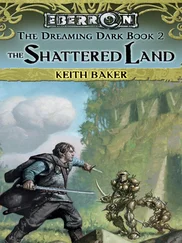
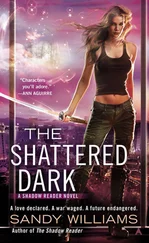
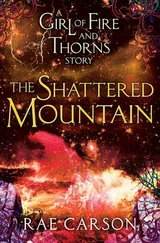

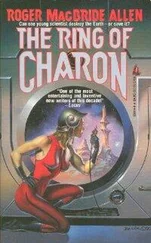

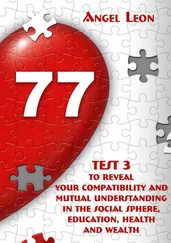
![Ширли Мерфи - The Shattered Stone [calibre]](/books/436059/shirli-merfi-the-shattered-stone-calibre-thumb.webp)


